第87章 Appendix I:Production,Consumption,Distribution,Exc
Since Exchange is simply an intermediate phase between production and distribution,which is determined by production,and consumption;since consumption is moreover itself an aspect of production,the latter obviously comprises also exchange as one of its aspects.
Firstly,it is evident that exchange of activities and skills,which takes place in production itself,is a direct and essential part of production.
Secondly,the same applies to the exchange of products in so far as this exchange is a means to manufacture the finished product intended for immediate consumption.The action of exchange in this respect is comprised in the concept of production.Thirdly,what is known as exchange between dealer and dealer,both with respect to its organisation and as a productive activity,is entirely determined by production.Exchange appears to exist independently alongside production and detached from it only in the last stage,when the product is exchanged for immediate consumption.But (1)no exchange is possible without division of labour,whether this is naturally evolved or is already the result of an historical process;(2)private exchange presupposes private production;(3)the intensity of exchange,its extent and nature,are determined by the development and structure of production:
e.g.,exchange between town and country,exchange in the countryside,in the town,etc.All aspects of exchange to this extent appear either to be directly comprised in production,or else determined by it.
The conclusion which follows from this is,not that production,distribution,exchange and consumption are identical,but that they are links of a single whole,different aspects of one unit.Production is the decisive phase,both with regard to the contradictory aspects of production and with regard to the other phases.The process always starts afresh with production.That exchange and consumption cannot be the decisive elements,is obvious;and the same applies to distribution in the sense of distribution of products.Distribution of the factors of production,on the other hand,is itself a phase of production.A distinct mode of production thus determines the specific mode of consumption,distribution,exchange and the specific relations of these different phases to one another.Production in the narrow sense ,however,is in its turn also determined by the other aspects.For example,if the market,or the sphere of exchange,expands,then the volume of production grows and tends to become more differentiated.
Production also changes in consequence of changes in distribution,e.g.,concentration of capital,different distribution of the population in town and countryside,and the like.Production is,finally,determined by the demands of consumption.There is an interaction between the various aspects.
Such interaction takes place in any organic entity.3.THE METHOD OF POLITICAL ECONOMY When examining a given country from the standpoint of political economy,we begin with its population,the division of the population into classes,town and country,the sea,the different branches of production,export and import,annual production and consumption,prices,etc.
It would seem to be the proper thing to start with the real and concrete elements,with the actual preconditions,e.g.,to start in the sphere of economy with population,which forms the basis and the subject of the whole social process of production.Closer consideration shows,however,that this is wrong.Population is an abstraction if,for instance,one disregards the classes of which it is composed.These classes in turn remain empty terms if one does not know the factors on which they depend,e.g.,wage-labour,capital,and so on.These presuppose exchange,division of labour,prices,etc.For example,capital is nothing without wage-labour,without value,money,price,etc.If one were to take population as the point of departure,it would be a very vague notion of a complex whole and through closer definition one would arrive analytically at increasingly simple concepts;from imaginary concrete terms one would move to more and more tenuous abstractions until one reached the most simple definitions.From there it would be necessary to make the journey again in the opposite direction until one arrived once more at the concept of population,which is this time not a vague notion of a whole,but a totality comprising many determinations and relations.The first course is the historical one taken by political economy at its inception.The seventeenth-century economists,for example,always took as their starting point the living organism,the population,the nation,the State,several States,etc.,but analysis led them always in the end to the discovery of a few decisive abstract,general relations,such as division of Iabour,money,and value.When these separate factors were more or less clearly deduced and established,economic systems were evolved which from simple concepts,such as labour,division of labour,demand,exchange-value,advanced to categories like State,international exchange and world market.The latter is obviously the correct scientific method.The concrete concept is concrete because it is a synthesis of many definitions,thus representing the unity of diverse aspects.It appears therefore in reasoning as a summing-up,a result,and not as the starting point,although it is the real point of origin,and thus also the point of origin of perception and imagination.The first procedure attenuates meaningful images to abstract definitions,the second leads from abstract definitions by way of reasoning to the reproduction of the concrete situation.